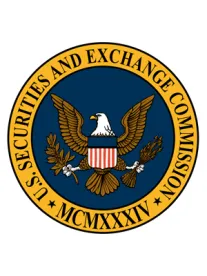With a Republican-controlled Congress and a Securities Exchange Commission that will be under the leadership of a new Chair and new Commissioners, we anticipate that proxy advisory firms will be in the rule-making and regulatory spotlight.
Recent Attention
On November 15, 2016, the U.S. Government Accountability Office (GAO) reported its findings following a review -- at the request of a subcommittee of the Senate Committee on Banking, Housing, and Urban Affairs -- of various aspects of the proxy advisory firm industry, including the role and influence of proxy advisory firms and the SEC’s oversight of such firms and their services.[1] The study was requested against the backdrop of growing demand for the services of proxy advisory firms, with proponents and critics articulating competing views on the need for regulation and oversight. Findings by the GAO corroborated an increased demand for proxy advisory services as well as increased influence on topics such as corporate governance and compensation practices.
In June 2016, a bill to tighten regulation of proxy advisory firms received the support of the House Financial Services Committee.[2] The Corporate Governance Reform and Transparency Act of 2016 if enacted would require proxy advisory firms to (i) register with SEC; (ii) employ an ombudsman to receive complaints about voting information accuracy; (iii) disclose potential conflicts of interest; (iv) disclose procedures and methodologies for formulating proxy recommendations and analyses; and (v) in essence provide companies with an opportunity to review and comment on a proposed recommendation by a proxy advisory firm before the recommendation is provided to investors. We expect to see similar bills introduced in the 115th Congress.
Background
Increased oversight of proxy advisory firms has been advocated by critics who see “outsized power and influence”[3] by registered proxy advisory firms on voting and corporate governance, a lack of transparency in their methods, and conflicts of interest. In 2013, then SEC Commissioner Daniel Gallagher expressed his view that the SEC was “uniquely poised” to review the role and regulation of proxy advisory firms and “…should explore possible reforms, including, but not limited to, requiring them to follow a universal code of conduct, ensuring that their recommendations are designed to increase shareholder value, increasing the transparency of their methods, ensuring that conflicts of interest are dealt with appropriately, and increasing their overall accountability.” Commissioner Gallagher further expressed that“Commission guidance clarifying to institutional investors that they need to take responsibility for their voting decisions rather than engaging in rote reliance on proxy advisory firm recommendations would go a long way toward mitigating the concerns arising from the outsized and potentially conflicted role of proxy advisory firms.”
Later that year, the SEC hosted a “Proxy Advisory Services Roundtable” to provide a forum to discuss the role of proxy advisory firms. The Roundtable facilitated dialogue that acknowledged the important role played by proxy advisory firms in the proxy process while also raising questions about the fairness of their recommendations and process. No rule-making initiatives resulted from the Roundtable; however, in June 2014, the Divisions of Investment Management and Corporation Finance published Staff Legal Bulletin No. 20, providing guidance about investment advisers’ responsibilities relating to proxy advisory firms and voting, and potential limitations on two exemptions to the federal proxy rules often relied upon by proxy advisory firms. Significantly, SLB No. 20 confirms the Staff’s view that an investment adviser that has retained a proxy advisory firm must provide sufficient ongoing oversight of the proxy advisor to ensure that proxies are voted in the best interests of the investment adviser’s clients.
The counterview to tighter regulation of proxy advisory firms is that these firms provide useful services to institutional investors who are sophisticated consumers of information that can decide for themselves how best to use such services.
Opponents of the House bill expressed concern with the potential for the bill to chill the independence of proxy advisers and undermine their role in protecting investors. By letter to the Senate Banking Committee in September 2016, the Council of Institutional Investors (CII) and various of its members and other organizations expressed concern that “the proposed legislation would weaken corporate governance in the United States; undercut the ability of proxy advisory firms to uphold their fiduciary obligation to their investor clients; and reorient any surviving firms to serve companies rather than investors.”[4] CII believes that, if enacted, the bill would provide companies with too much influence over proxy advisors, result in “heavy-handed” oversight, and “create costs for institutional investors with no clear benefit.” The letter noted that “while imperfect, proxy advisory firms play an important and useful role in enabling effective and cost-efficient independent research, analysis and informed proxy voting advice.”
Looking in the Crystal Ball
It remains to be seen what legislation, if any, ultimately is enacted given the uncertainty of the impact of the recent elections on the current financial regulatory landscape. It is likely, however, that a new SEC will build on the dialogue and the focus facilitated by its predecessor Commission and consider regulation in light of growing attention on proxy advisory firms.
[1] GAO, Corporate Shareholder Meetings: Proxy Advisory Firms’ Role in Voting and Corporate Governance Practices, GAO-17-47 (Washington, D.C.: November 15, 2016).
[2] See Corporate Governance Reform and Transparency Act of 2016, H.R. 5311, 114th Cong. (2016).
[3] SEC Commissioner Daniel M. Gallagher, Remarks at Society of Corporate Secretaries and Governance Professionals (July 11, 2013).
[4] Letter dated September 6, 2016 from Council of Institutional Investors et al. to The Honorable Richard C. Shelby and The Honorable Sherrod Brown, United States Senate Committee on Banking, Housing, and Urban Affairs re Proposed Legislation Relating to Proxy Advisory Firms.
This post was written with contributions from Elisabeth Fiordalisi.








 />i
/>i
